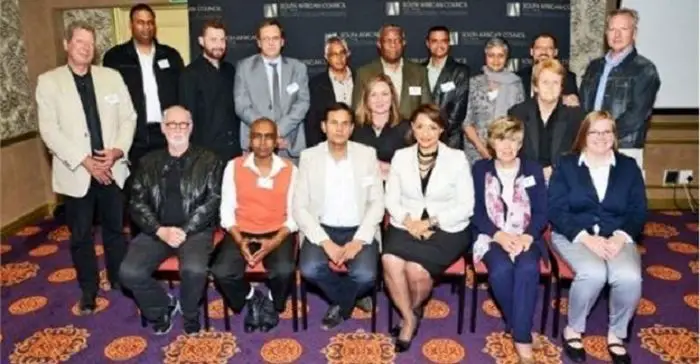Marking World Architecture Month this October, the theme announced by the International Union of Architects (IUA) is ‘Design a better World’.
At the start of this important month for the built environment, the South African Council for the Architectural Profession SACAP, has renewed and enhanced the collaborative relationship it fosters with its forum of 12 voluntary associations (VAs) who are collectively pursuing the realisation of people-centred architecture in the country.
At a recent specially convened forum in Johannesburg, two representatives from each VA met to raise issues of importance for their member base with SACAP’s president Yashaen Luckan and registrar/CEO Marella O’Reilly. The last such forum and signing of a Memorandum of Understanding (MOU) took place in 2010.
Luckan, an architect himself, reiterated that it is a legal requirement that any person who undertakes architectural work, whether within their individual capacity or within a practice, must be registered with SACAP.
He stressed that VAs have a duty to explain to their members that while historic misinterpretations of the Architectural Act have muddied understanding of this, each registered person must be educated on the significant benefit of being registered for their own professional development and long-term prosperity.
Regulation and guidance
SACAP is mandated by the Department of Public Works to regulate and guide the architectural profession. VAs are validated by SACAP, though they are autonomous. Each signs a Memorandum of Understanding (MOU) that sets out their tasks to promote, grow and develop at regional levels the various disciplines of architecture and the profession at large. Each VA abides by a Code of Conduct and formally reports to SACAP on an annual basis.
The largest of these VAs is the South African Institute of Architects (SAIA) which has seven large regional affiliates comprising of members who are architectural professionals.
The other recognised VAs are the SA Institute of Architectural Technologists (SAIAT), the SA Institute of Building Designers (SAIBD) and the SA Institute of Draughting (SAID). SACAP is proud to have recognised a new VA, Freedom Architecture Consulting Empowerment (FACE).
Through its VAs, SACAP promotes collaborative relationships of mutual co-operation and the maintenance of a sustainable skills base of high quality architectural professionals. It also relies on its VAs to grow the information and knowledge hub and embrace indigenous knowledge systems.
SACAP meanwhile continues in its duty and obligation to register all architectural professionals and liaise with the VAs to ensure that through the MOU, their member base is in alignment with the objectives of SACAP.
SACAP programmes
The strong growth and development of the architectural profession is facilitated by SACAP’s Continuing Professional Development (CPD) and Recognition of Prior Learning (RPL) programmes. VAs play the important role of providing, promoting, organising and validating CPD courses.
CPD credits are a requirement for all registered professionals in order to be eligible for renewal of registration with SACAP. The VAs charge a fee for validating CPD Category one activities and ensure broader access and participation of the whole profession.
The RPL programme, which will soon be facilitated through an online system, is currently undergoing a BETA testing phase and expected to make huge strides in redressing past imbalances and giving people with architectural skills the possibility of articulation within the profession, with its related benefits. RPL is SACAP’s key transformation driver.
Following the forum meeting, SAID vice president Megum Reyneke remarked that her association’s member base is finding that even the most difficult banks are now trusting that SACAP registered persons are able to carry out claims and documentation with regards to draws against building work complete.
Concludes Luckan, “We look forward to our continued successful working relationship with the VAs, and the vital role they play in inspiring transformation, growth and development of the profession through institutional excellence.”

